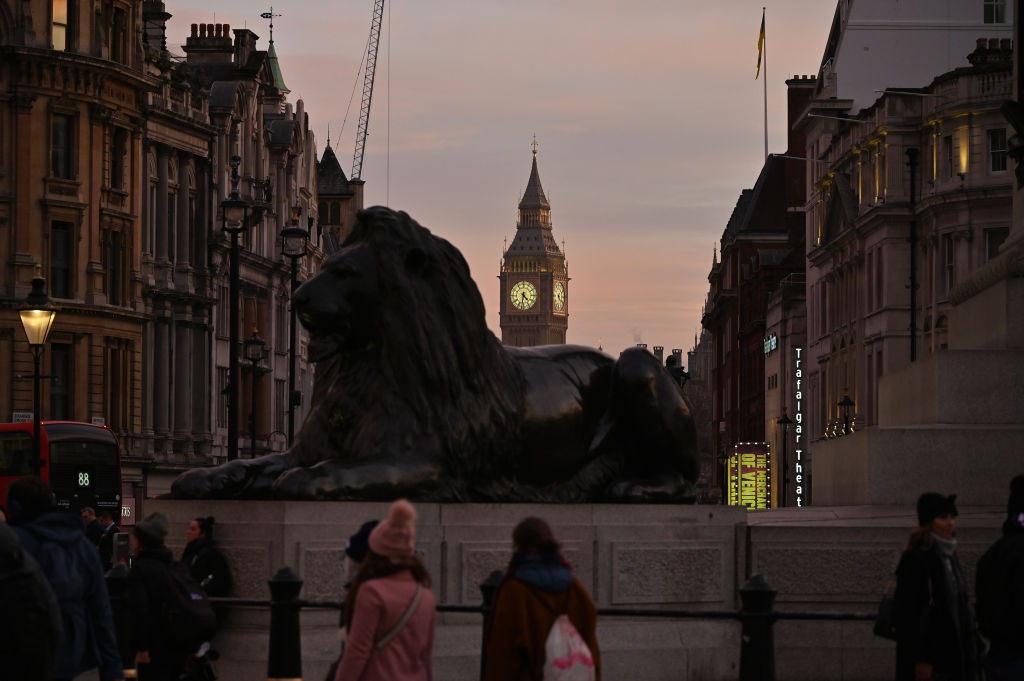For much of my career, beginning as a foreign adviser to the U.S. Congress, I have proudly stood as one of America’s strongest advocates for Britain.
I have defended her history, her institutions and her role as the original home of liberty.
I have championed the UK in forums throughout the US and in publications across the globe, reminding audiences that our shared values of liberty and democracy, bequeathed by our mother, England, form the bedrock of transatlantic strength.
Today, for the first time, I find Britain indefensible. The affection and historical respect remains. The confidence is gone.
Britain now prosecutes her own citizens not for violence or treason but for words. Lucy Connolly was sentenced to 31 months in prison for a tweet in the wake of the Southport tragedy; she served ten.
Her crime was expression, harsh perhaps but still speech. Graham Linehan, the award‑winning creator of Father Ted, was arrested at Heathrow by armed officers with guns for online comments defending women’s spaces. Arrested, by police carrying weapons, for his opinions.
This is the country that once gave the world John Stuart Mill.
Such cases expose what Britain has become: a two‑tier system of justice. Those branded far‑right, nationalist or “Islamophobic” are prosecuted with zeal. Those spreading incendiary rhetoric from Islamist or minority factions are met with indulgence. The 2024 riots exposed the imbalance in plain sight. Swift punishment for those the state distrusts. Hesitation and leniency for those it fears. Law as weapon, not protection.
This has not happened by accident. Britain’s institutions have been captured. Its police, judiciary and permanent bureaucracy answer less to the people than to a class of activists embedded at the top.
Leading them is a man who knows the law not as a shield for the people but as a sword for ideology: Keir Starmer. Starmer did not merely elevate activist lawyers to high office. He is one. He has built his career knowing how to bend legal frameworks into blunt instruments. Now in Downing Street he deploys those instruments against the liberties Britain once bequeathed the world.
A particularly chilling example lies in the push to enshrine a definition of “Islamophobia.” What is presented as tolerance is in practice a new blasphemy law, criminalizing criticism of religion and culture whenever it offends official sensitivities. The land that abolished the Star Chamber is now flirting with prosecuting thought crimes.
The suspicion of national pride runs just as deep. During the 2024 riots, Starmer cautioned against using the St George’s Cross or the Union Jack “divisively.” To ordinary Britons these flags are symbols of unity and heritage. To their government they are red flags of extremism.
Meanwhile, foreign flags fly freely across London without question. The message is unmistakable: pride in your own country is suspect. Allegiance to any other is acceptable.
Immigration policy tells the same story. Labour boasts of progress, yet more than 32,000 asylum seekers remain in taxpayer‑funded hotels at a cost of £2.1 billion a year. Whole communities are expected to accept disruption without complaint, and if they speak out they are branded intolerant. Concerns about security or cohesion are brushed aside as if no decent Briton could possibly hold them.
From abroad the shift is impossible to ignore. Elon Musk has called Britain’s censorship Soviet‑style. JD Vance has condemned its crackdown on speech. The US State Department now lists Britain as a country presenting significant risks to free expression. I never imagined America would place Britain alongside nations that treat liberty as a nuisance. That day has come.
For those of us who have long defended Britain, it is heartbreaking. This is the country whose strong institutions enabled America’s own rise and whose commitment to liberty inspired ours. Yet under its current leadership Britain has stumbled into repression, constraint and fear, where ordinary citizens look over their shoulders before speaking.
And still there is a chance for recovery. A counter‑movement exists. Figures such as Nigel Farage, Robert Jenrick, Ben Habib and the Reform UK party speak plainly about borders, free speech and sovereignty. They refuse to accept that patriotism is extremism or that questioning official orthodoxy is hate. For this they are demonized by the governing elite, but for this they are listened to by ordinary citizens who have had enough and are reasserting their national pride as manifested in the tidal wave of Union and St. George flags that have flooded cities throughout the UK through efforts such as Operation Raise the Colors.
Britain must decide. It can continue down its present course, where speech is policed, justice is politicised and Starmer’s legal class governs not on behalf of the nation but against it. Or it can remember its own inheritance, trusting its people and restoring freedom as the organizing principle of national life.
The world does not need a Britain that jails her patriots. It needs the Britain that once taught us all to be free.


























Leave a Reply